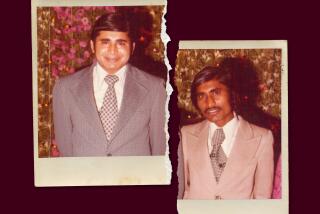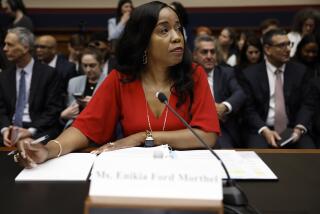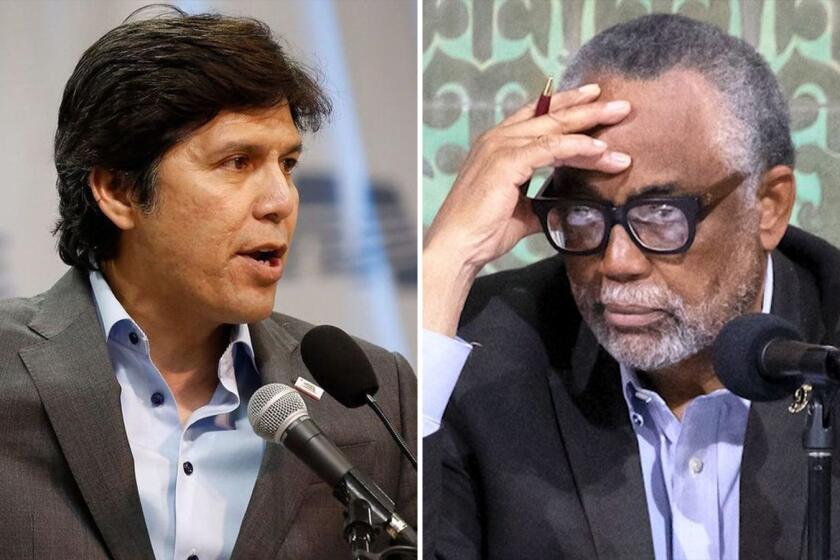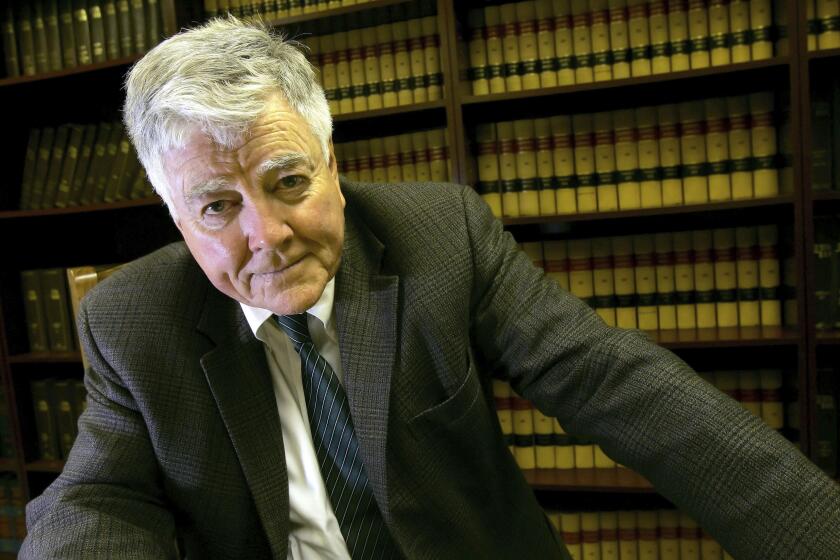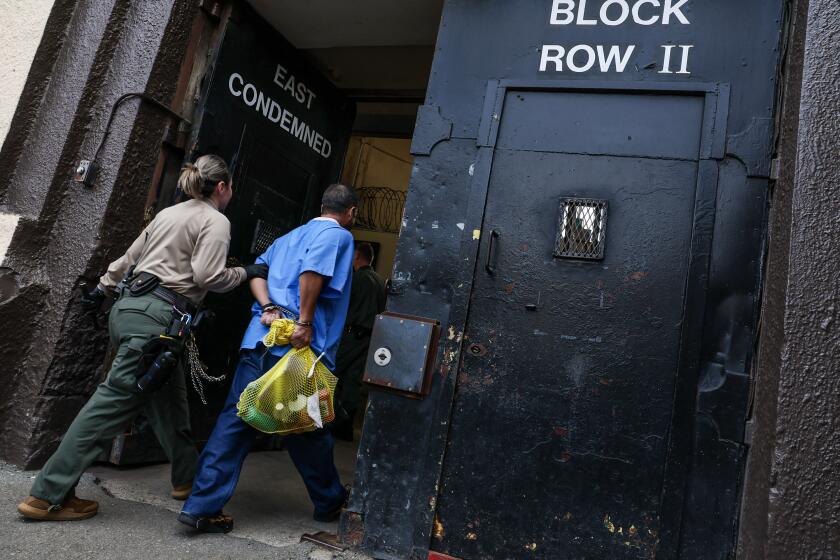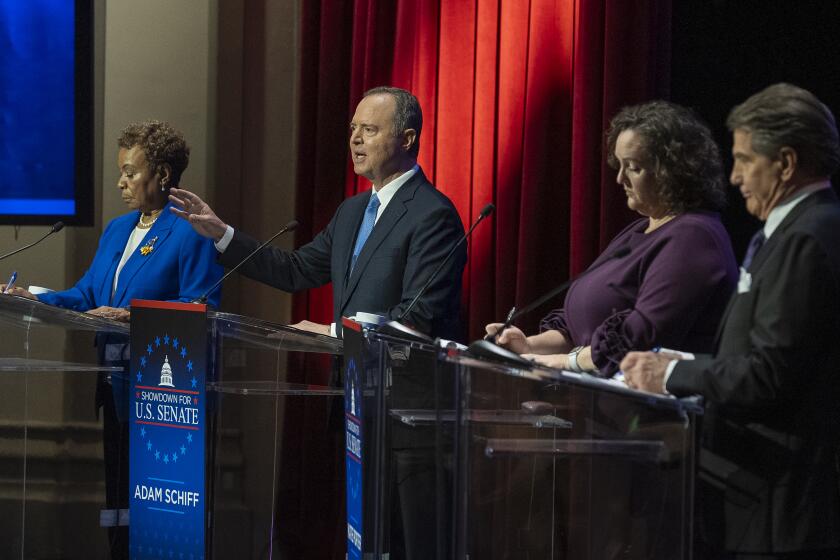Justice Takes Leave of the Night Shift
I used to work nights, and I didn’t like it.
When I was on the 3 p.m. to midnight shift, I missed dinner with my family and my social life was pretty much limited to drinking with the guys after work. On another shift, from 11 p.m. to 7 a.m., I felt like I was afflicted with permanent jet lag.
The worst part was how others--family and friends--regarded me. They seemed to feel that anyone who worked nights couldn’t be doing well on the job.
So I can understand why Los Angeles County Superior Court judges oppose night shifts, a feeling expressed strongly last Tuesday when the Superior Court Executive Committee voted to abandon holding court sessions at night.
Think what it takes to be a judge. Four years of college. Three more in law school. Passing the Bar. Practicing law. Months or even years of humiliation, cultivating politicians before the governor appoints you to the bench.
Still, I survived, as did most of my night side colleagues. There was work to be done at night, and someone had to do it.
With the judges, it is more than working conditions. Night court also has become a hot political dispute. It’s especially important in Dist. Atty. Ira Reiner’s campaign for reelection.
Night court began six years ago as an experiment to ease the congestion in the overcrowded criminal courts where, amid human misery, judges, prosecutors and defense attorneys dispense assembly-line justice.
The courts would be hopelessly gridlocked if not for the controversial system of plea bargaining where the judge, prosecutor and defense agree on a lighter sentence in exchange for a guilty plea to avoid a trial.
Murder, for example, might be reduced to manslaughter. The defense attorney, figuring the client is going to lose anyway, may think it’s a good bargain. The judge, facing a monumental court calendar, couldn’t be happier. The prosecutor, with his heavy case load, is pleased with the arrangement.
Many members of the electorate don’t like that. Their feeling prevailed at the polls several years ago, with voter approval of a state ballot measure sharply limiting plea bargaining, and toughening other aspects of the criminal law.
Responding to voter pressure, the county supervisors decided to try to open the court calendar so the electorate’s mandate could be carried out. Without funds to build new courtrooms, the supervisors proposed night court.
The judges were reluctant. The supervisors’ power over the independent judiciary is limited. And the judges traditionally have resisted any attempt by the supervisors to dictate to them. But after long negotiations, the supervisors agreed on a trial program to open three courtrooms at night. This week, the judges ended the experiment.
At this point, Reiner became a major player in the game.
The D.A. is facing tough political times. For years, his deep voice, piercing eyes and head of thick gray hair made him a winning television campaigner. But in 1990, he was defeated for the Democratic nomination for attorney general. Sensing weakness in his 1992 reelection bid, at least three challengers have emerged and there may be more.
Reiner knows how to fight back. He’s focused on court gridlock as a major theme, especially on night court and the plea bargaining system it was supposed to end.
This week, he told his deputies to stop plea bargaining. “Neither court congestion, nor jail and prison overcrowding are appropriate reasons for disposing of serious felony charges at less than the maximum sentences,” he said.
And, to take care of the expected overload, he spoke out for night court. “Rather than shutting down, night court should be expanded,” he wrote to Ricardo A. Torres, presiding judge of the Superior Court.
Reiner’s anti-judge rhetoric was reinforced when he strongly criticized the judge in the case of the Korean-born grocer convicted of killing an African-American teen-ager.
As the debate continued, Torres insisted that night court isn’t needed. Reiner, on the other hand, said the judges just don’t want to work nights. I asked a spokeswoman for the courts about that. She denied it was because the judges scorned night work.
I hope not, for the idea is picking up support.
Other candidates, looking at judicial gridlock, have concluded that justice--like the news--is a day and night proposition.
That was the message Thursday when the first of Reiner’s challengers to announce, Beverly Hills attorney Bob Tanenbaum, said he wants the courts open 16 hours a day, seven days a week.
So judges beware. If Tanenbaum wins, they may be working weekends as well as nights.
More to Read
Start your day right
Sign up for Essential California for news, features and recommendations from the L.A. Times and beyond in your inbox six days a week.
You may occasionally receive promotional content from the Los Angeles Times.

